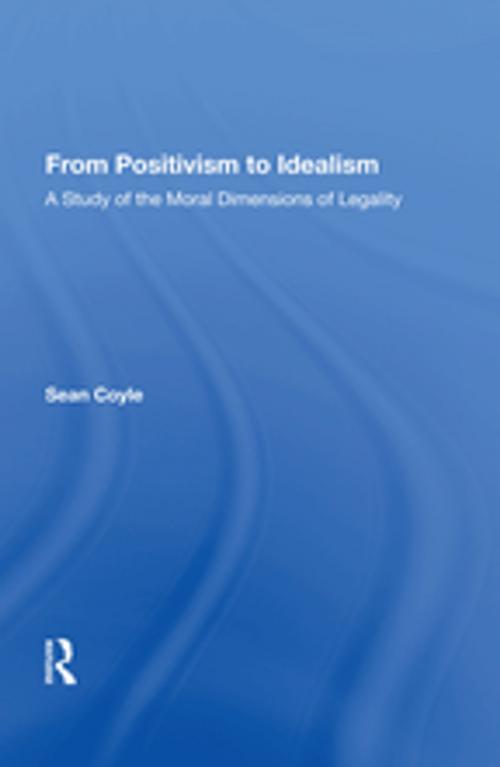From Positivism to Idealism
A Study of the Moral Dimensions of Legality
Nonfiction, Reference & Language, Law, Jurisprudence| Author: | Sean Coyle | ISBN: | 9781351157940 |
| Publisher: | Taylor and Francis | Publication: | November 28, 2017 |
| Imprint: | Routledge | Language: | English |
| Author: | Sean Coyle |
| ISBN: | 9781351157940 |
| Publisher: | Taylor and Francis |
| Publication: | November 28, 2017 |
| Imprint: | Routledge |
| Language: | English |
Illuminating the idea of legality by a consideration of its moral nature, this book explores the emergence and development of two rival traditions of legal thought (those of 'positivism' and 'idealism') which together define the structure of modern juridical thought. In doing so, it consciously departs from many of the tendencies and working assumptions that define modern legal philosophy. The book examines the shifts in thinking about the rule of law and the wider significance of law, brought about by changing conceptions of the nature of law: from an understanding of law in which the primary focus is on rights, to an articulation of the legal order as a body of deliberately posited rules, and finally to the present understanding of law as a systematic body of rules and principles underpinned by an abiding concern with individual rights. By exposing the historical and metaphysical underpinnings of these theoretical traditions, the book imparts an idea of their limitations and moves beyond the understandings offered within them of the nature of legality.
Illuminating the idea of legality by a consideration of its moral nature, this book explores the emergence and development of two rival traditions of legal thought (those of 'positivism' and 'idealism') which together define the structure of modern juridical thought. In doing so, it consciously departs from many of the tendencies and working assumptions that define modern legal philosophy. The book examines the shifts in thinking about the rule of law and the wider significance of law, brought about by changing conceptions of the nature of law: from an understanding of law in which the primary focus is on rights, to an articulation of the legal order as a body of deliberately posited rules, and finally to the present understanding of law as a systematic body of rules and principles underpinned by an abiding concern with individual rights. By exposing the historical and metaphysical underpinnings of these theoretical traditions, the book imparts an idea of their limitations and moves beyond the understandings offered within them of the nature of legality.















